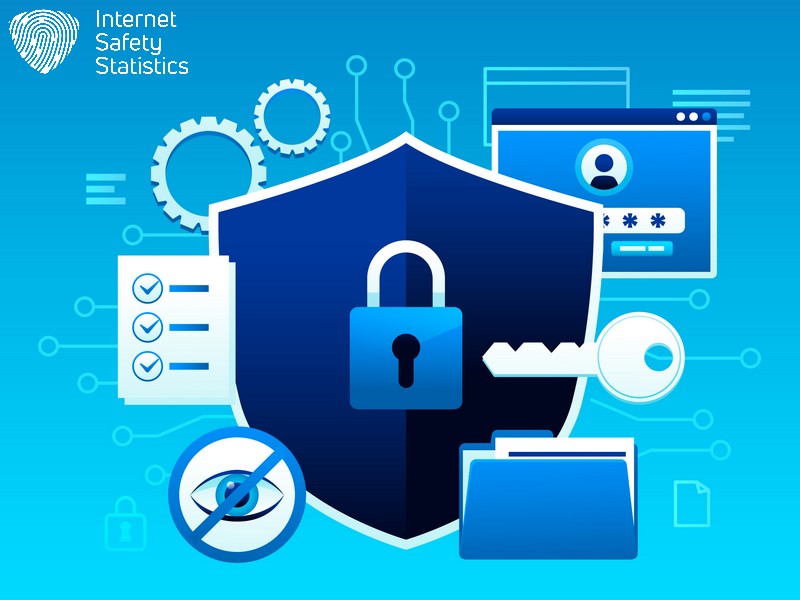
The digital age offers undeniable advancements, connecting us in ways unimaginable just a few decades ago. However, this progress comes intertwined with a complex ethical dilemma: data protection and privacy. As we interact online, our personal information constantly circulates across various platforms, raising critical questions about control, ownership and ethics of data protection.
On one hand, robust data protection safeguards our privacy, preventing unauthorised access to sensitive information and protecting us from potential misuse. This empowers individuals to control their online identities and fosters a sense of security in the digital landscape.
On the other hand, unrestricted data collection fuels innovation and technological progress. Data analysis allows companies to personalise user experiences, recommend relevant products and services, and refine their offerings to meet our needs better. This data-driven approach also plays a crucial role in scientific research, contributing to advancements in healthcare and other fields.
The ethical challenge lies in striking a balance between these two competing interests. Finding ways to harness the power of data for progress while safeguarding individual privacy is paramount. This exploration delves into the core ethics of data protection, analyses the ethical considerations, and examines potential solutions that ensure user privacy and responsible data utilisation. By understanding these complexities, we can navigate the digital world confidently, fostering a future where innovation thrives alongside a strong commitment to online privacy.
Stick around for some smart tips!
The Importance of Ethical Considerations in Data Science
Ethical considerations in data science are crucial for protecting privacy and ensuring the responsible use of personal data. Privacy concerns, collection of personal data, use of sensitive information, and misuse of personal data all highlight the need for ethical guidelines in data science.
Privacy Concerns
Privacy concerns are at the heart of ethical data protection. As internet users, parents, and office workers share their personal information online, they trust companies to handle their data responsibly. This trust is essential in a digital world where sharing details has become a part of everyday life. Every click, search, or purchase can reveal insights about behaviours and preferences. Organisations must guard this sensitive information zealously to prevent identity theft or misuse.
Protecting privacy isn’t just about security measures; it’s also about respecting individual rights and making informed choices on how personal data is used. People must have control over their information — who sees it, what is collected, and for what purpose.
The challenge lies in balancing the innovation from big data with the crucial need to maintain people’s privacy rights. This delicate balance prompts us to consider the next key issue: Collection of Personal Data.
Collection of Personal Data
To address privacy concerns, data collection must be approached ethically and responsibly. The gathering of personal data is a critical aspect that demands careful handling. Organisations need to recognise the sensitive nature of personal information and take robust security measures to prevent unauthorised access or breaches.
When companies collect individuals’ deep and personal data, it often leads to ethical dilemmas that need thoughtful consideration. Striking a balance between utilising this data for innovation while respecting privacy rights can be challenging but crucial.
With the allure of hyper-personalised services tempting companies to delve deeper into personal data, there is an increased responsibility to ensure transparent practices and secure storage systems are in place.
Use of Sensitive Information

Data ethics demands responsible handling of sensitive information to uphold individual privacy rights. Companies must ensure that personal data, such as medical records and financial details, are collected and used with explicit consent and robust security measures in place. It’s crucial to balance the potential benefits of using sensitive information for innovation with the need to protect individuals from unauthorised access or breaches.
Embracing transparency, accountability, and ethical innovation can help address the complex ethical dilemmas posed by collecting and utilising sensitive information. Ethical data practices are essential for safeguarding personal privacy while enabling technological progress in the digital age.
Misuse of Personal Data
Data misuse occurs when personal information is exploited for unintended purposes, jeopardising individual privacy and security. Unauthorised access to sensitive data can result in identity theft, financial fraud, or even emotional harm.
Companies must implement strict safeguards to prevent the misuse of personal data and uphold their ethical responsibility to protect individuals’ privacy rights. Organisations must prioritise secure storage and responsible use of personal information, safeguarding against potential breaches and unauthorised exploitation.
Engaging in unethical practices such as selling or mishandling personal data can lead to severe consequences for individuals and organisations. With the increasing reliance on technology and data-driven decision-making, there is a growing need for heightened vigilance against the misuse of personal data.
Balancing Privacy and Progress
Companies must implement robust security measures to maintain a balance between privacy and technological progress. Protecting sensitive information from unauthorised access and breaches is crucial. Achieving this balance requires navigating the crossroads of data ethics and finding the middle ground between individual privacy rights and innovation-driven advancements.
Ethical innovation, transparency, and accountability are essential to address the complex ethical dilemmas big data presents. It’s about upholding individual privacy rights while tapping into opportunities for progress that data sharing presents in a secure manner.
Balancing data privacy with national security in the digital age necessitates ethical innovation and technological solutions tailored to protect personal data without hindering societal advancement.
Best Practices for Maintaining Ethical Data Practices
Businesses and organisations should prioritise transparency and accountability in their data handling practices. Informed consent from individuals and using privacy-enhancing technology are essential for maintaining ethical data practices.
Transparency and Accountability
Transparency and accountability are crucial aspects of ethical data handling. Organisations need to be open about collecting, using, and storing personal data. This involves communicating their data practices to users and obtaining informed consent to collect personal information. Furthermore, companies must be accountable for safeguarding sensitive data from breaches and unauthorised access, employing robust security measures to protect individuals’ privacy rights.
Embracing transparency and accountability in data handling can help foster trust with individuals collecting data. By openly communicating their practices and taking responsibility for protecting personal information, organisations can demonstrate a commitment to upholding privacy rights while still harnessing the benefits of using big data ethically.
Informed Consent
Ensuring informed consent is vital in ethical data practices. This means individuals clearly understand how and why their data will be used before giving permission for its collection. It involves presenting the information simply and transparently to empower individuals to make an informed decision about sharing their data. By obtaining informed consent, organisations demonstrate respect for individual privacy rights and foster trust with their users.
Informed consent also aligns with the fundamental principle of autonomy, enabling people to exercise control over their personal information. This practice not only supports ethical data handling but also contributes to building a more transparent and accountable relationship between organisations and the individuals whose data they collect.
Privacy-Enhancing Technology
Privacy-enhancing technology, such as encryption and anonymisation tools, is crucial in safeguarding personal data from unauthorised access and misuse. These tools enable individuals to have greater control over their information while benefiting from various platforms’ services. By employing robust encryption methods, sensitive data can be securely transmitted and stored, reducing the risk of breaches and cyber threats that could compromise privacy.
Implementing privacy-enhancing technologies protects individual privacy and fosters trust between users and organisations handling their data. With constant advancements in digital innovation, integrating such technologies into data practices is vital for upholding ethical standards and ensuring the responsible use of personal information. As companies strive to balance progress and privacy rights, embracing these privacy-enhancing technologies becomes increasingly important in safeguarding sensitive personal data.
Individuals must understand how these technologies work to make informed decisions about protecting their privacy online.
Ethical Dilemmas in the Age of Big Data

In the age of big data, there is a constant struggle to balance innovation and privacy. The handling and use of data can present ethical dilemmas that must be carefully navigated.
Balancing Innovation and Privacy
Striking a balance between innovation and privacy is crucial in the digital age. Data collection fuels progress and drives advancements, but it’s essential to carefully manage the risks of sharing data.
Ethical innovation and technology are pivotal in balancing data privacy and national security, ensuring that personal data is collected, used, and stored ethically. Navigating this crossroads requires constant ethical consideration and a commitment to upholding individual privacy rights while embracing transparency, accountability, and responsible innovation.
In today’s hyper-connected world, companies are tempted to collect deeper personal data for hyper-personalised services. This can lead to ethical dilemmas as organisations grapple with protecting individual privacy rights while leveraging data for innovative solutions.
The Role of Data Handling Practices
Data handling practices play a critical role in safeguarding personal data. Ethical decision-making is essential to ensure responsible personal information collection, usage, and storage. Organisations must prioritise robust security measures to protect sensitive data from breaches and unauthorised access, balancing the need for progress with privacy rights. Transparency, accountability, and ethical innovation are crucial for addressing the complex ethical dilemmas presented by big data.
Embracing privacy-enhancing technologies can help manage the risks of sharing personal data while driving advancements. Ethical data handling practices require careful consideration and commitment to upholding individual privacy rights. It involves navigating the crossroads of privacy and progress in an ethically responsible manner.
In conclusion, it is crucial to uphold ethical standards in data protection. Balancing privacy and progress requires a commitment to responsible and transparent data practices. Embracing accountability and innovation can help navigate the complexities of data ethics. Striking a balance between individual privacy rights and technological advancements is essential for a sustainable digital future. Organisations must prioritise ethical decision-making to ensure the responsible handling of personal data in the age of big data.
FAQs
1. What does ‘The Ethics of Data Protection’ involve?
The Ethics of Data Protection involves making decisions that respect personal privacy while keeping up with technological progress and information security needs.
2. Why are privacy-enhancing technologies important?
Privacy-enhancing technologies help keep your data safe, protecting your private information from unauthorised surveillance and misuse.
3. How does ethical decision-making play into data protection?
Ethical decision-making in the context of data protection means considering how to balance the collection and use of data with a person’s right to privacy before implementing any form of surveillance or regulation.
4. Who regulates the use of personal data to protect my privacy?
In many places, specific regulations govern how businesses handle personal data, aiming to uphold strong ethical standards for protecting individuals’ privacy.
